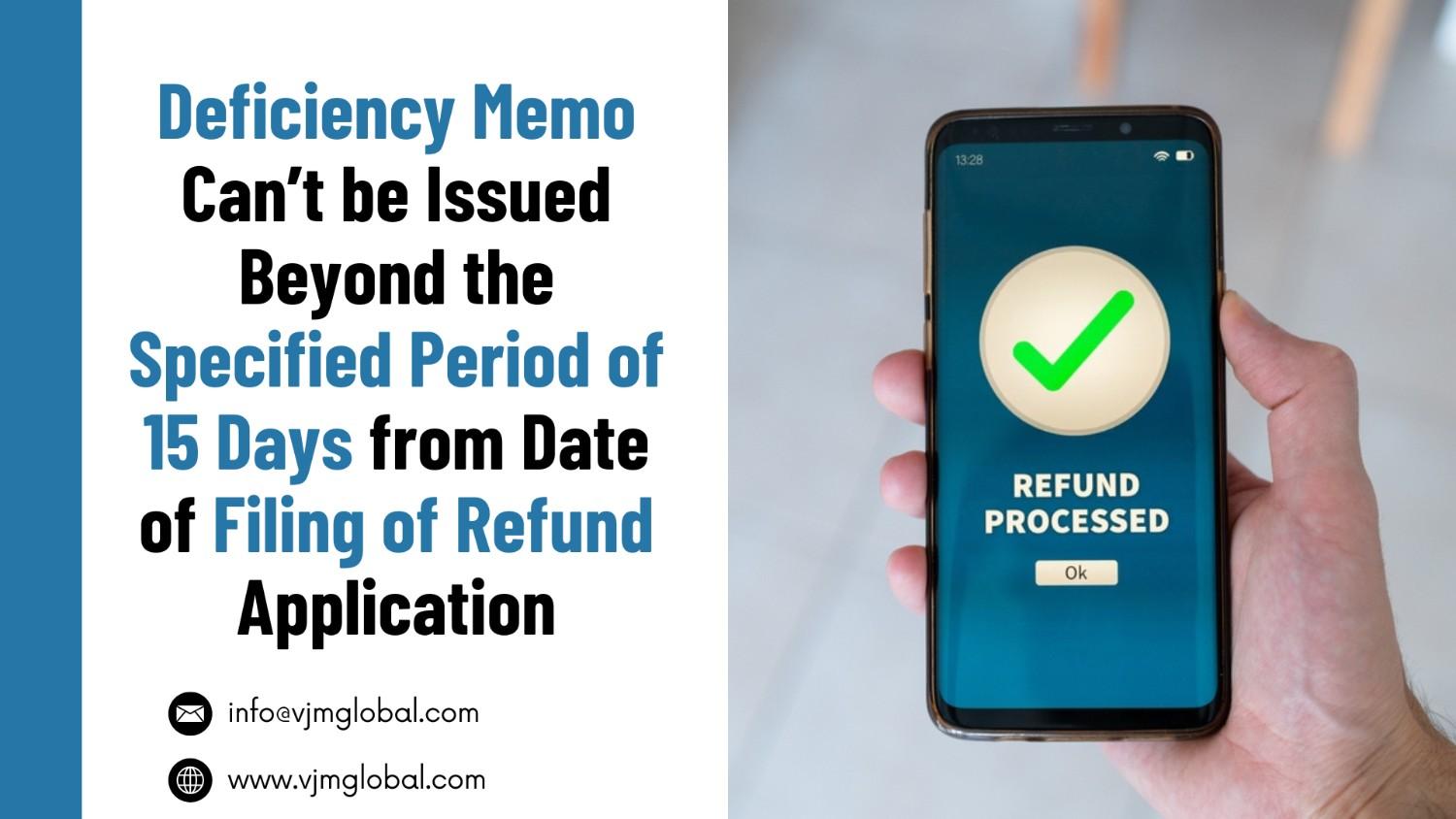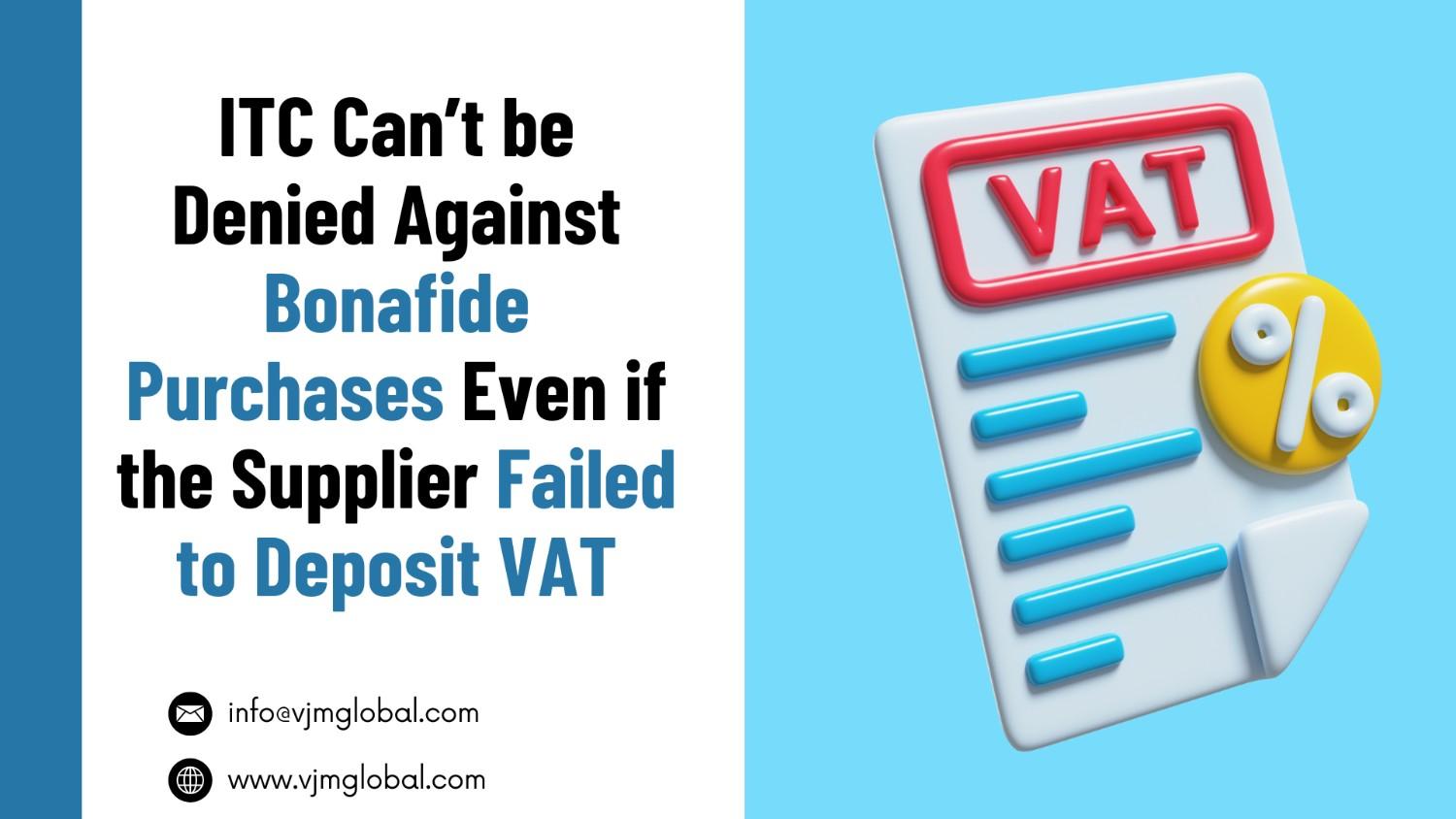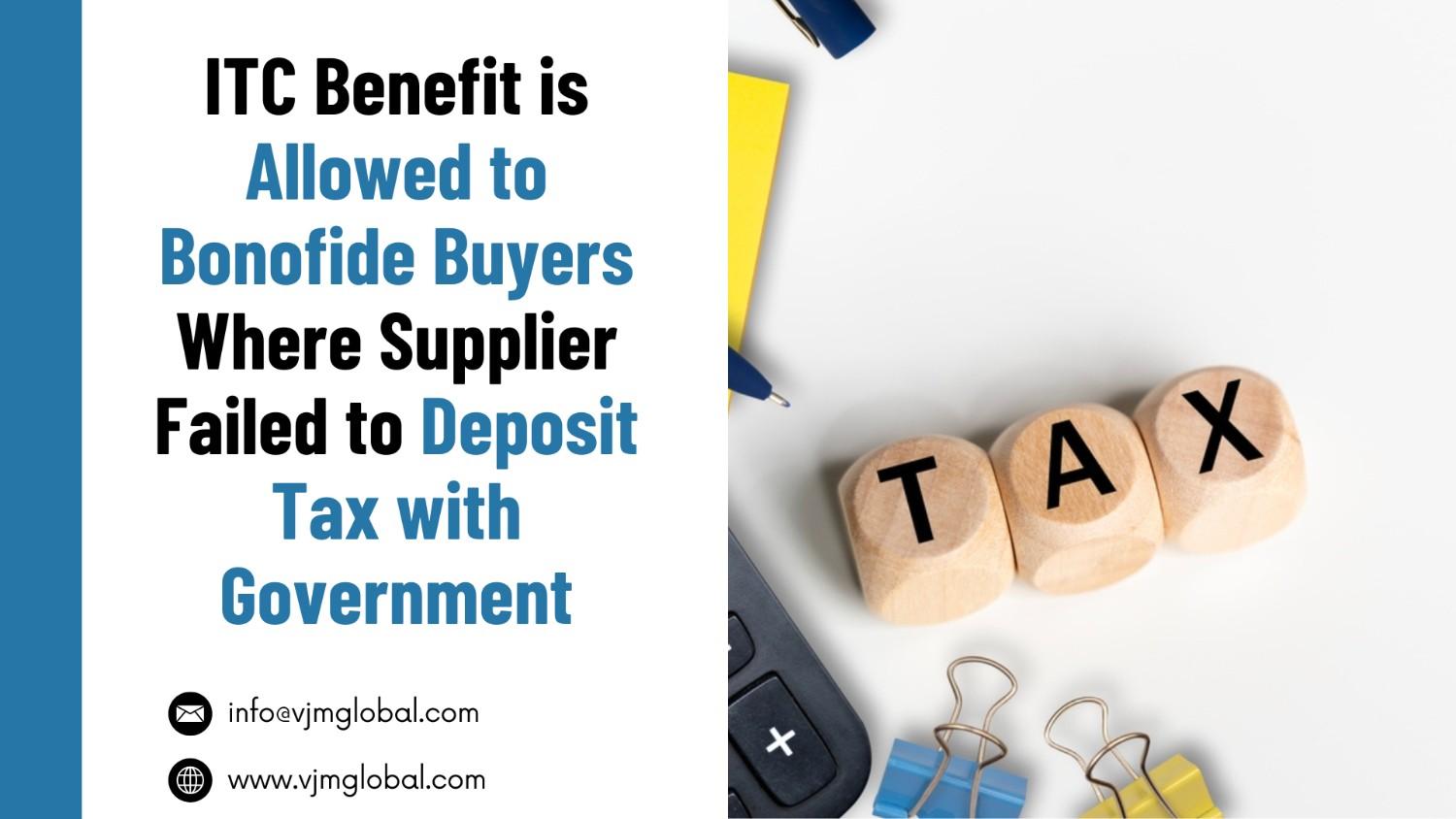Post implementation of GST, the passing of ITC under fake invoices, i.e., invoices issued without underlying supply of goods or services for the sole purpose of passing ITC, has increased extensively. GST Anti Evasion is unveiling cases involving crores of fake ITC on a daily basis.
Various fake firms are set-up for the sole purpose of passing on fake ITC. Multiple firms get registered under GST and make crores of transactions of fake ITC and then cancel the GST registration. The GST department is making new strategies of identifying these firms and GSTIN of such firms are getting canceled on a retrospective basis and notices are issued to all the recipients to whom invoices are issued from such bogus firms.
With respect to same, Department of Trade & Taxes, NCT of Delhi has issued circular No. F.3(479)/GST/Policy/2023/346 dated 1st March 2023 specifying standard operating procedure (SOP) for cancellation of Registration and for a repository of Non-genuine taxpayers.
Following is the brief of SOP issued by Department:
1. Background
- GST Authorities have detected a large number of taxpayers involved in the use of fake invoices and wrongful availment of ITC. Such ITC is availed on the inward supplies shown from non-genuine taxpayers without actual supply of goods & services.
- Non-genuine taxpayer means:
- Those who issue invoices under GST Act without actual supply of goods or services only to pass on ITC to the claimant.
- It also includes the persons who obtain registration by means of fraud, wilful misstatement or suppression of facts.
- GST Registration is obtained for the fraudulent purpose like:
- Claim of bogus refunds
- Generation fake e-way bills for suppressed supplies of other taxpayers, but they themselves are not engaged in genuine business activity.
- In the past various cases have been detected where refund is fraudulently obtained for ineligible ITC. On verification, it was found that some taxpayers did not even exist. In these cases, the taxpayers took input tax credit (ITC) based on fake invoices. The tax liability was paid using this fraudulent ITC.
- Information about fake dealers/suspicious transactions is obtained from various sources like CGST, DGARM, Other States, Economic Offense Wing (IOW), etc. which shows the involvement of the concerned taxpayers.
- Fake invoices are those wherein invoice is raised without actual supply of goods or services. Following are the illustrative scenarios where such fake ITC can be used:
- Issue of invoices without supply of goods or services:This is a fraudulent activity where invoice is issued without any actual supply of goods or services.In such cases, there is no receipt of goods or credit by the issuer of invoice. The issuer of the invoice shows payment of tax through non-existent input tax credit, resulting in a loss of revenue for the government. The buyer of the fake invoice avails inadmissible credit which is used for payment of tax. This can also lead to situations where no GST is paid even by ITC by the issuer of the fake invoice.
- Issue of invoices by persons where the goods are diverted: In this case, the invoice is issued to one person, but the goods are diverted to some other person. The person who purchases the invoice may utilize the credit for offsetting tax liability or claiming a refund in case of exports, resulting in a loss of revenue for the government.
- Routing of invoices through shell/dummy companies: In this case, where invoices are routed through a series of shell or dummy companies, and the input tax credit is transferred from one company to another in a circular or linear fashion to increase turnover. ITC availed without receipt of goods or services is inadmissible, and utilization of such credit for actual regular supplies may result in a loss of revenue or financial accommodation.
- Use of fake invoices issued in the name of non-existing entities: In this case, where fake invoices are issued in the name of non-existing entities by persons intending tax evasion. Such fake invoices are used to facilitate the clandestine movement of goods under the cover of non-genuine invoices and E-waybills with fraudulently obtained GST registration of such non-existing entities and credentials thereof. This can be done with or without the knowledge and/or consent of such persons.
2. Necessity/Purpose of Standard Operating Procedure (SOP)
In view of these circumstances, it is necessary to have a standard operating procedure for:
- identification of non—genuine/existing taxpayers.
- Creating a “repository” of non-genuine taxpayers with supporting and corroborative evidence.
- Use this evidence in legal actions against those who claim ITC on fake invoices.
- Share information of non—genuine taxpayers and evidence with other authorities, including state governments and central authorities.
3. Relevant Legal Provisions
- As per Section 29 of the GST Act read with Rule 20 of GST Rules, a taxpayer can apply to cancel their GST registration in FORM GST REG-16 in the following situations:
- Discontinuance of business or closure of business;
- Transfer of business on account of amalgamation, merger, de-merger, sale, lease, or otherwise;
- Change in constitution of business leading to a change in PAN;
- Taxable person (including those who have taken voluntary registration) is no longer liable to be registered under GST;
- Death of sole proprietor;
- Any other reason (to be specified in the application).
- While filing an application for cancellation, the applicant is required to provide mandatory information which will be captured on the common portal. This information includes:
- Address for future correspondence with mobile number and email address;
- Reason for Cancellation;
- Date from which cancellation is sought;
- Value and the input tax payable on the stock of inputs, inputs contained in semi-finished goods, input contained in finished goods, stock of capital goods/ plant and machinery;
- In case of transfer, the merger of business, etc., particulars of registration of the entity in which the existing unit has been merged, amalgamated, or transferred (including the copy of the order of the High Court/ transfer deed);
- Details of the last return filed by the taxpayer along with the ARN of such return filed.
- Further, cancellation proceedings can also be initiated by the proper officer on his own motion
- The Proper Officer has power to cancel registration in following cases from Such date as he thinks fit including any retrospective date:-
- a registered person has contravened such provisions of the Act or the rules made thereunder as maybe prescribed; or
- a person paying tax under section 10 (Composition dealer) has not furnished returns for 3 consecutive tax periods; or
- any other registered person has not furnished returns for a continuous period of 6 months; or
- any person who has taken voluntary registration has not commenced business within 6 months from the date of registration; or
- Registration has been obtained by means of fraud, wilful misstatement or suppression of facts:
However, the proper officer shall not cancel the registration without giving the person an opportunity of being heard in these cases.
4. Standard Operating Procedure for Cancellation of Registration
Department of Trades and taxes, NCT of Delhi has prescribed the following SOP to be followed for cancellation of GST registration:
4.1 Cancellation of GST is initiated by the Proper Officer on his own motion:-
The proper officer shall identify involved in generation and use of fake invoices by following risk parameters:
- Multiple GSTIN registrations for a given address.
- Multiple GSTIN for a given PAN.
- GSTIN using incomplete or wrong addresses.
- Taxpayer using sensitive commodities.
- Common email, common mobile numbers, common address, common authorized signatories, common promoters for multiple GSTIN.
- Mismatch between the premises declared and the volume of goods transacted.
- Mismatch between the quantum or transactions and the e-way bills generated. If there are, no e-way bills or less e-way bills generated compared to the details of transactions as per the GST returns.
- PANs involved in any “fake invoice” fraud or any other GST frauds appear as either in GSTR I A or GSTR 2A.
- Abnormal ITC utilization (for example above 95%).
When the Proper Officer initiates cancellation proceedings based on the grounds mentioned above, the registration of the taxpayer will be canceled from the date of registration itself, which means that all activities of the taxpayer will be considered invalid from the very first day.
Further, date of cancellation of GSTIN (i.e. retrospective date) shall reflect in GSTR-2A of recipients. This enables the Proper Officer of the recipient to deny input tax credit on supplies received from the canceled taxpayer.
4.2 When the application for cancellation is submitted by the registered taxpayer
When an application is submitted by a registered taxpayer on the GST portal the proper officer has to ensure that immediate action is taken on the application in order to safeguard Govt. revenue:
a. Checking the registration profile of the taxpayer thoroughly to find out:
- Nature of constitution i.e. proprietorship, partnership.
- Age of stakeholders.
- Whether the business premises was rented or self-owned.
- Whether documents uploaded on the portal are complete and genuine.
- Whether field visit was conducted at the time of registration.
- Number of nature of amendments carried out during the registration tenure.
b. Brief scrutiny of returns to find out:-
- Volume of business transactions conducted by the taxpayer.
- Whether returns upto date from which cancellation has been sought are filed.
- Whether there is any mismatch between output tax liabilities as per GSTR I & GSTR3B and/or mismatch between input tax credit as claimed in GSTR 3B and that is auto-populated in GSTR 2A.
- Whether GSTR- 2A of the taxpayer contains supplies received from cancelled dealers or non-genuine taxpayers.
c. Status of refund claims/processed/granted to the registered person.
D. Any other information/documents received from internal or external sources:
- If the Proper Officer suspects any suspicious activities by a taxpayer, he may direct the GSTI to conduct local inquiries to verify if the reported business activities were carried out at the scale as mentioned in the returns.
- If the GSTI report is negative, then appropriate action such as imposing penalties or cancelling the registration from the beginning may be taken.
- Any application for cancellation of registration can only be accepted if the taxpayer has cleared all their dues. If an application is rejected, then it must be followed by the initiation of cancellation proceedings under Section 29(2) of the GST law.
Note: It is necessary that action on the application to be taken within 30 days
E. Details of authorised signatory/ Advocate/ CS shall be taken on record for future correspondence.
- The proper officer shall pass the speaking order.
- The cancellation of GSTIN, retrospectively, shall not affect the liability of the person to pay the taxes and other dues for any period.
- Upon cancellation of GSTIN, the taxpayer is required to furnish final return in Form GSTR-10 within 3 months from date of cancellation or date of order of cancellation, whichever is later.
5. Evidence collected during investigation/ Inspection/ Verification
The proper officer shall collect the detailed evidences during investigation/ inspection to establish veracity of business of taxpayer. An illustrative list of evidences to be taken on record:
- Photograph of place of business with inspecting officer;
- In case fraud documents are submitted as a proof of identity or place of business, corresponding genuine document shall be taken on record;
- Ownership details alongwith documents of premises;
- Statement from nearby/adjacent shop that whether the taxable person is existing at the place of business or not.
- Further, whether the professional is aware of activity/transactions. A separate deposition shall be recorded of such professional, if possible.
- If books of accounts, from which fake invoices are issued, are found in the premises of professional then such facts shall be taken on record.
- Details of all bank accounts operated by such taxpayer including manner of operating bank account such as e-banking, cheques etc..
- As far as possible affidavit with photo ID should be taken with the following detailed contents, wherever applicable:
- Supply of fake goods/ services filed returns in Form GSTR - 3B and used wrong ITC to discharge the liability of such outward tax.
- The Taxpayer is engaged in issuance of fake Tax invoices without actual Supply of goods/ services and also received such fake tax invoices without receipt of any goods and filed returns in Form GSTR - 3B by reporting such fake outward supplies and used wrong lTC upon the strength of such fake tax invoices received and other related documents.
- The person in whose name the GST registration has been obtained.
- The taxpayer registration has been obtained by somebody else under the pretext of job offer or otherwise and credentials in this behalf are with such person. Such person had indulged in the issuance of fake tax invoices and the generation of e-way bills in the name of person of no means.
6. Action to be taken after visit, preparation of evidence folder and sharing the same
- After completion of inspection, verification, investigation and gathering of all evidence, the proper officer reaches to the conclusion that the taxpayer is non-genuine, he shall prepare a physical folder of the all evidences collected and immediately initiate the process of GST registration cancellation ab initio.
- Evidence folder should have a detailed report about inspection/ verification/ investigation by the officer, index of direct/circumstantial/ corroborative evidence and certified copies of Each evidence.
- In case investigation is carried out by investigation officer and not the jurisdictional officer, then the investigating officer shall forward the detailed report along with certified copy of evidence folder to the Zonal officer of State.
- The Zonal officer shall issue the speaking and proper reasoned show cause for suo-motu cancellation of GST registration ab-initio according to the provisions of section 29 of the SGST/CGSTAet(s).
- The detailed report along with evidences and statutory orders shall also be sent in electronic form to Business Intelligence Unit (BIU) by the Proper Officer.
- Investigation Officer shall send the folder of evidences to Zonal Officer to cancel the registration certificates of such non-genuine taxpayers.
- Simultaneously, copy of evidence folder shall be send to BIU for record and depository purpose.
- It is important to note that original evidences shall remain in the custody of the Proper Officer or, as the case may be, the Investigation Officer.
- The Officer shall submit/share either certified copy of evidence in physical form or soft copy of original evidence in electronic form wherever submission/sharing of these details is required for evidence purpose. However, it shall be in soft format to BIU.
7. Repository of non-genuine taxpayer
- BIU shall act as a repository of non-genuine taxpayers.
- BIU shall prepare a list of such non-genuine taxpayers and also maintain the electronic copy of evidence as received from Investigation or Proper Officers.
- BIU shall also act as repository for the information of non-genuine taxpayers identified and communicated by other State Tax authorities or CBIC authorities.
- BIU shall maintain the list of such non-genuine/non-existent taxpayers along with evidence in the form of communication of the concerned State Tax/ CBIC Authority.
- BIU shall send the list/ information of non-genuine/existing taxpayers of State to GST Council/GSTN from time to time as per the directions of the Commissioner.













